This Artist Uses Recognizable Pop Characters To Create Fake Ancient Artifacts
Categories: Art | Design and Architecture | Exhibition | Photo project | World
By Vika https://pictolic.com/article/this-artist-uses-recognizable-pop-characters-to-create-fake-ancient-artifacts.htmlThough I have never personally excavated an archaeological find, I did experience the thrill of finding a thought-to-be-lost item in the back of my drawer, five years later. I could only imagine the rush archaeologists experience upon finding a treasure from ancient times. But what if the archaeological finds are actually fake?
Joshua Goode, a Texas-based contemporary artist, became fascinated with the process of discovery and validation. He began creating fake artifacts in the shape of memories from his childhood. Later, he even created the fictitious Aurora-Rhoman civilization, inspired by the achievements of major historical figures. With his faux pop culture-inspired treasures, Joshua conducts staged excavations around the world. His artifacts mix facts and fiction, creating absurdly comical discoveries based on real research.
So, it is up to you to decide, Pandas, would you be excited by such finds?
More info: Instagram | joshuagoode
16 PHOTOS
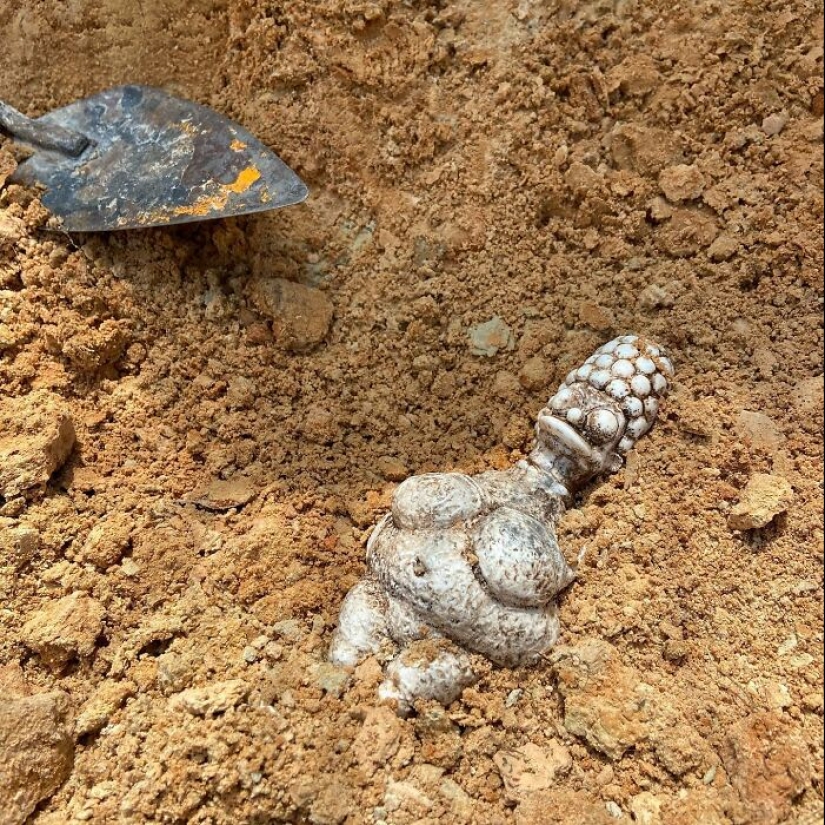
#1
To learn more about these artifacts and their author, Pictolic reached out to Joshua Goode. Joshua shared the backstory of his creations: “Originally, in post-graduate school, I was creating tombs. I have a sister who has some severe disabilities and I was faced with her mortality. It made me very aware of trying to acknowledge and remember people. How do you create immortality? How do you honor someone’s memory and their legacy? So, it started out as making tombs for her. I was building them thinking of the Mycenaean and Egyptian tombs where all of someone’s personal belongings were included with them.
In 2011, after making a few of these installations, I received a travel award from the Dallas Museum of Art. I proposed to go study the funerary practices of prehistoric people. I was really fascinated to see how others — our ancestors — dealt with the same issue. I was in the process of researching where to go when I was connected through archaeologist friends to a real archaeology dig at Vogelherd Cave in Germany. I joined their team and from that experience, I became fascinated with the process of discovery and validation. How does something gain importance and how do we determine that? Of course, that fit in perfectly with what I was already doing by using these personal artifacts and trying to give them the importance to other people. That’s when I started to make the chimerical figures using my childhood toys.”
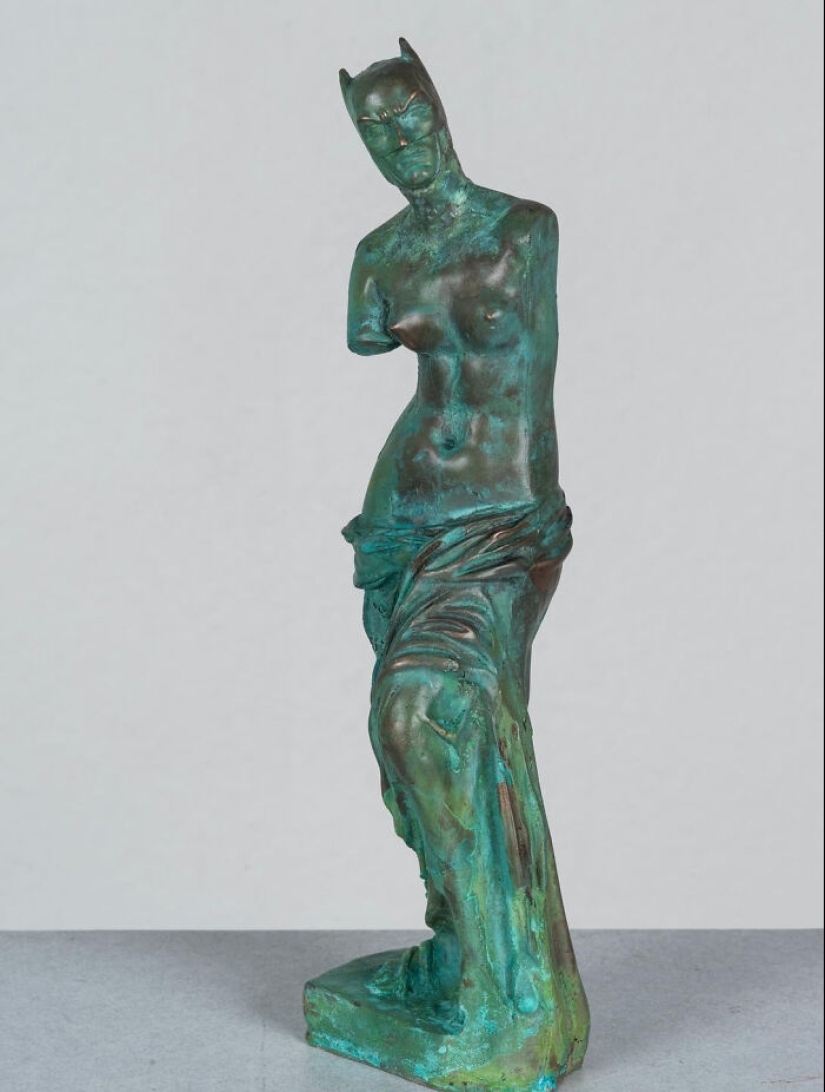
#2
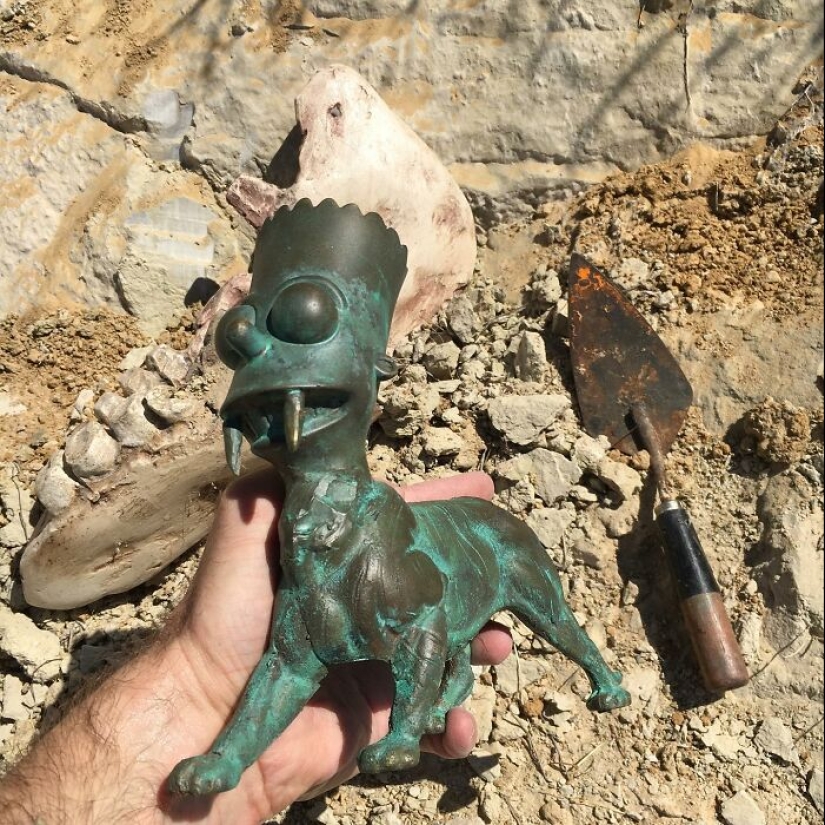
#3
Since then, Joshua has created the aforementioned fictitious Aurora-Rhoman civilization, which he commented more on.
“I grew up in rural Texas in between the small towns of Aurora and Rhome. To expand the historical narrative and increase the conceptual importance of my sculptures I created an ancient civilization that absurdly predates all others and is centered there. My faux research institute, The Aurora-Rhoman Institute of Archaeology and Cultural Relics, examines the evidence of my ancient civilization through archaeological excavations as community performances at locations around the world. Inspired by amateur archeologists such as Heinrich Schliemann who discovered Troy and by past elaborate hoaxes like that of the Piltdown Man, I use my 'discoveries' to manipulate and verify my invented civilization,” wrote Joshua.
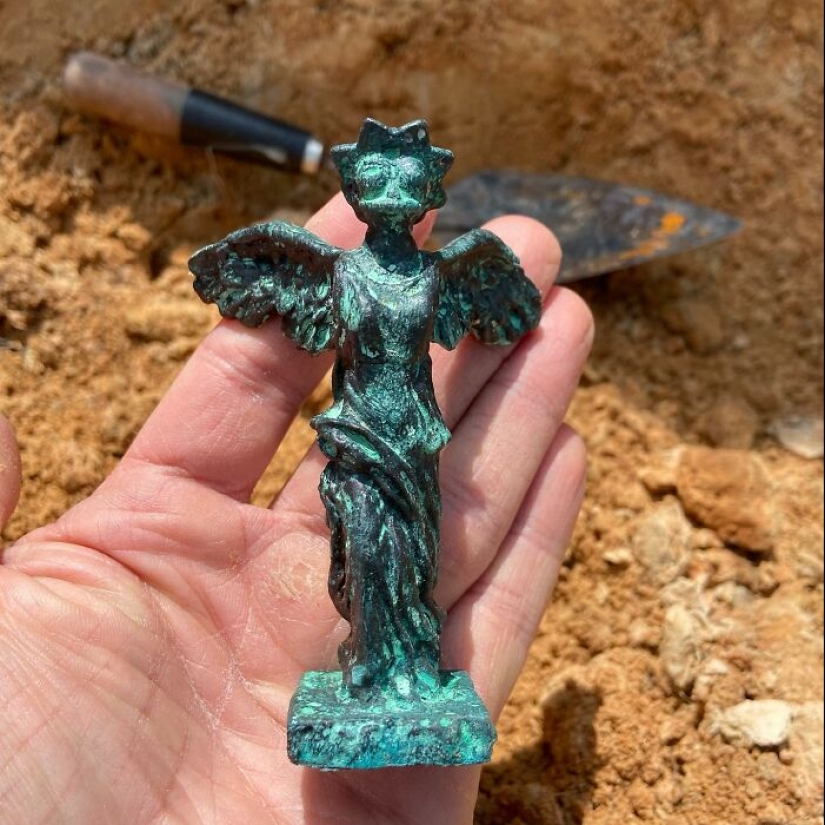
#4
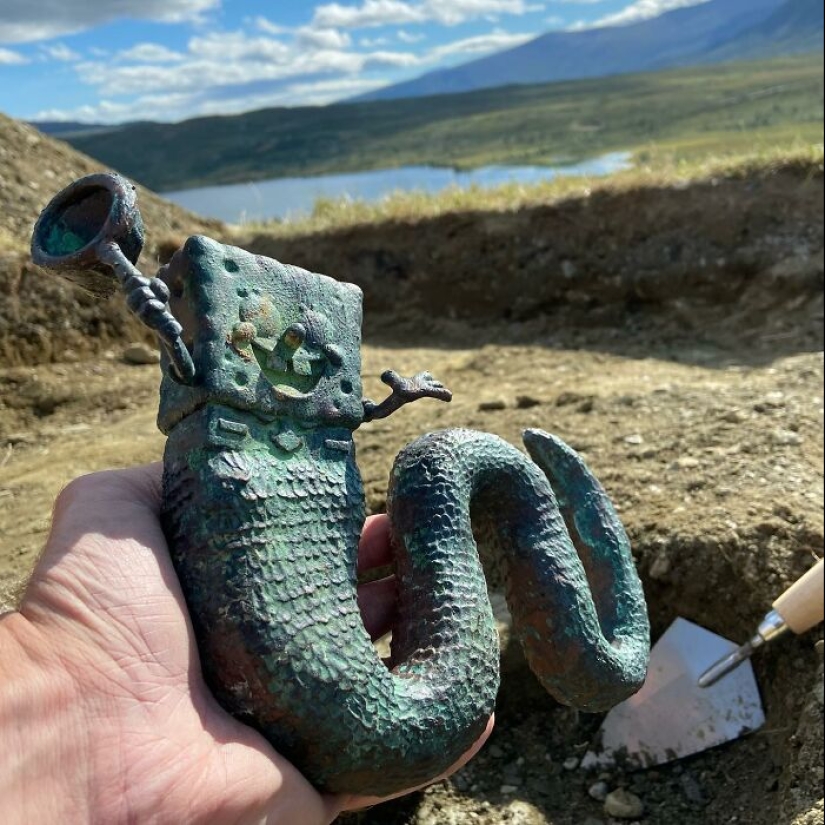
#5
Behind his comical approach, there is actually an important and relevant message that Joshua tries to convey through his art. “We’re clearly seeing the real-world effects of fake news, controlled narratives, and how easily we can shape how people act based on what they think their history is and what they want to return to. It is a fine line that I try to walk. 'Am I contributing to a problem? Am I also creating fake news?' It is walking that line so people can tell that my excavations are fake and identified as fake. Hopefully, it will help them strengthen their critical engagement and identify false narratives.
This is also why I use characters from The Simpsons and other recognizable pop imagery in my artworks. This is also why the in-person engagement of the archaeological performances is so important, and I am always looking for the next location. It creates a different energy, a different dynamic, and getting to talk with the community. Hopefully, it impacts the way they look at themselves, and their history, and lets them find commonalities with others. Humor and satire make it easier to address such serious ideas.”
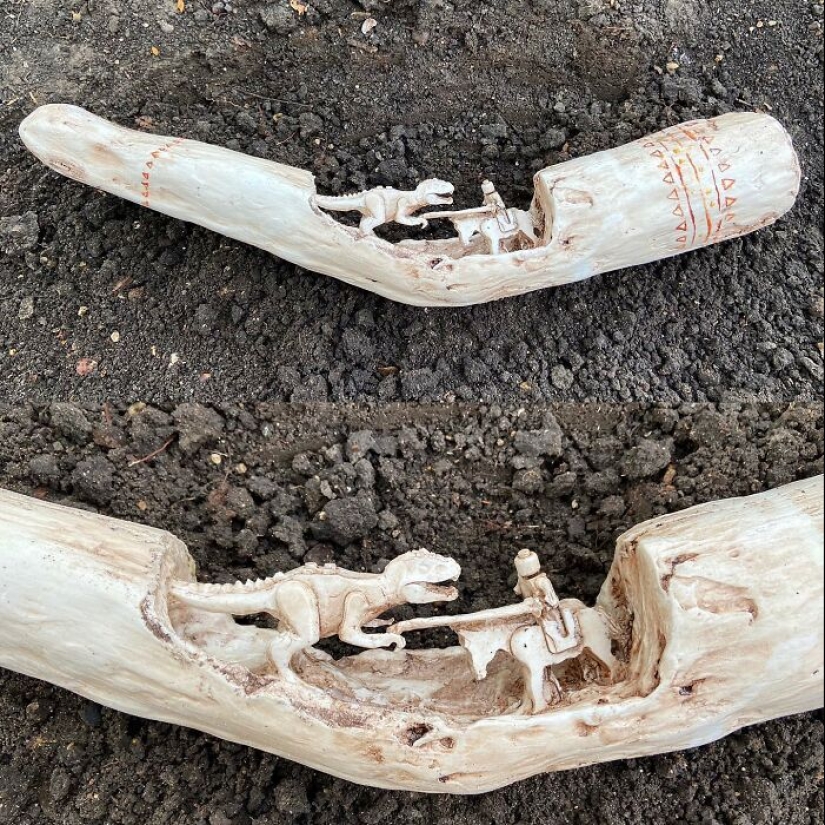
#6
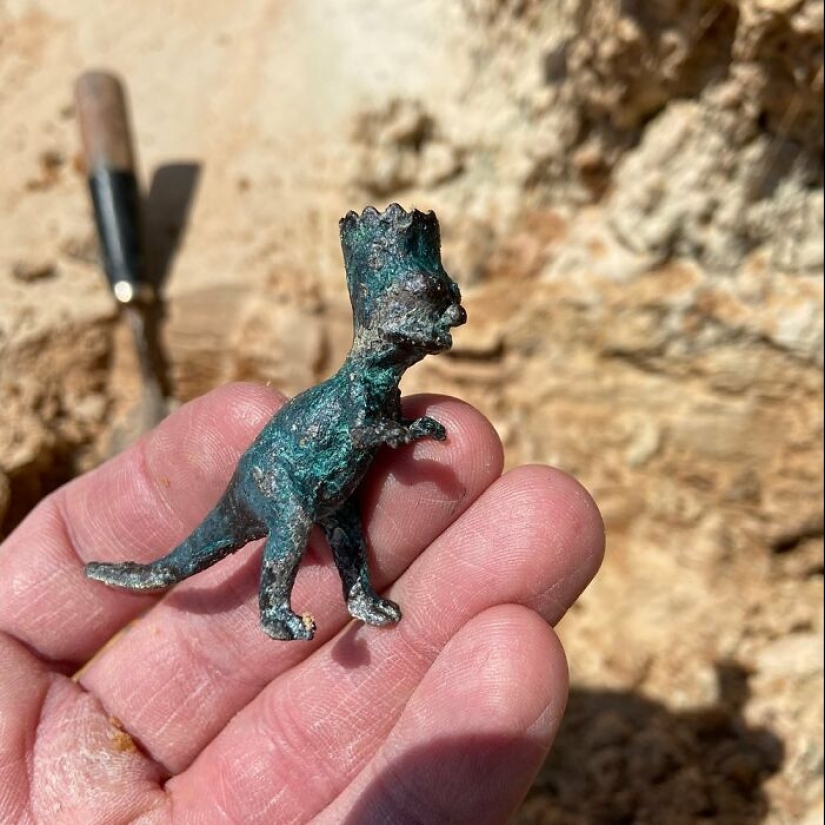
#7
Joshua’s faux treasures have been exhibited worldwide. We were wondering how he sees his work connecting with different audiences across cultures and regions. He shared: “This goes back to trying to create something that is seen as universally significant across a multitude of cultures. I love history and expanding my knowledge, especially of prehistoric history, the development of humanity, and how we are all connected. When I travel to a new location, it is a chance to learn something new and find a way to connect with a local audience. I want to address something that is very specific to their history.”
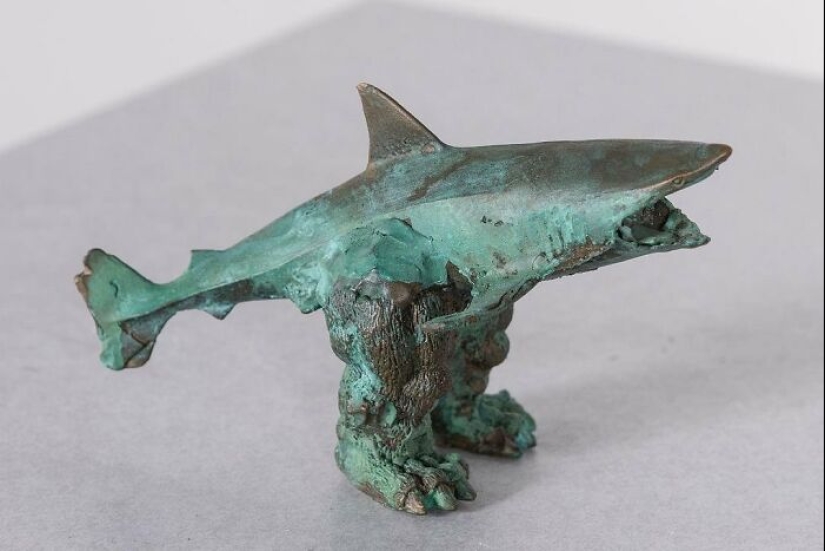
#8
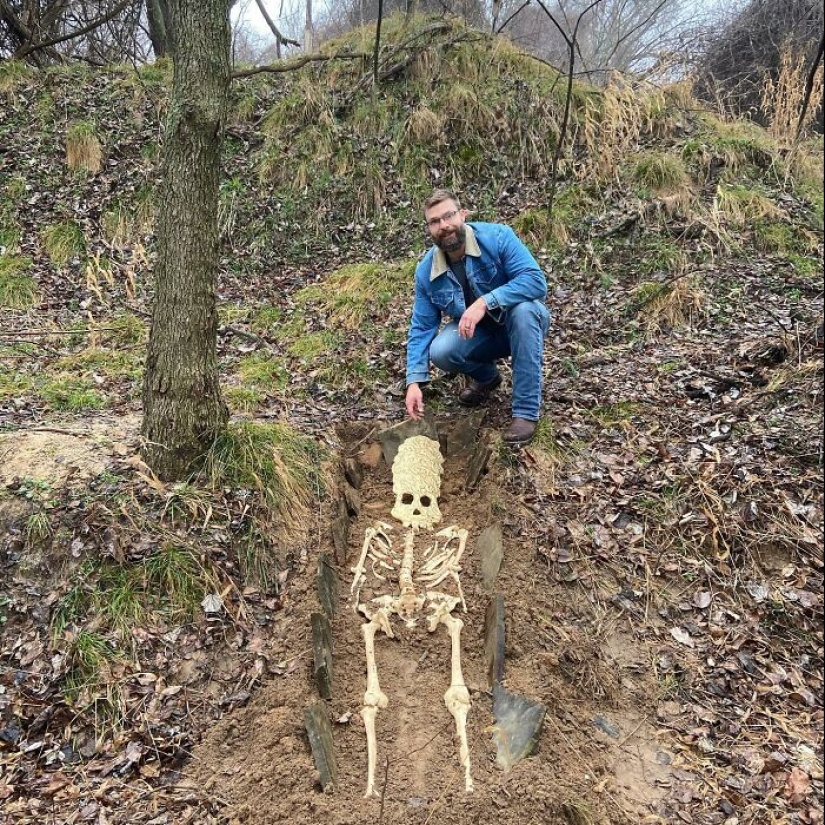
#9
Research plays a crucial role in shaping the artifacts. Joshua shared how he elaborates on his research process and how it informs the creation of imaginative pieces. “For a project in St. Petersburg, Russia, I was inspired by Kunstkamera, an anthropological and ethnographic museum filled with oddities built by Peter the Great. There were two-headed calves and fetuses with mutations, like with one eye or two heads. It was established in 1714 to educate people about these conditions and how they occur naturally, to dispel superstitious fear. So, in my project in St. Petersburg, I played with that history and made Two Headed T-Rex Skull (The Hydra). This project led to national media attention in Russia, where I was able to talk about issues of fake history, the need to check sources, and how people in positions of power can use history to shape how we view things. Considering recent events in Russia, it is really sad to reflect on, but I felt it was important to say that on the national news there.
By connecting with local history, my projects invite people in because they are familiar. They also point out that I am a fool and educate me on the real history. We have real discussions on their history, not the absurd version created by a silly American. Then other people in the audience will chip in with their stories. I love the interesting discussions and learning so many new things, but I find it also helps to expand the audience beyond those who would typically visit a gallery or a museum.”
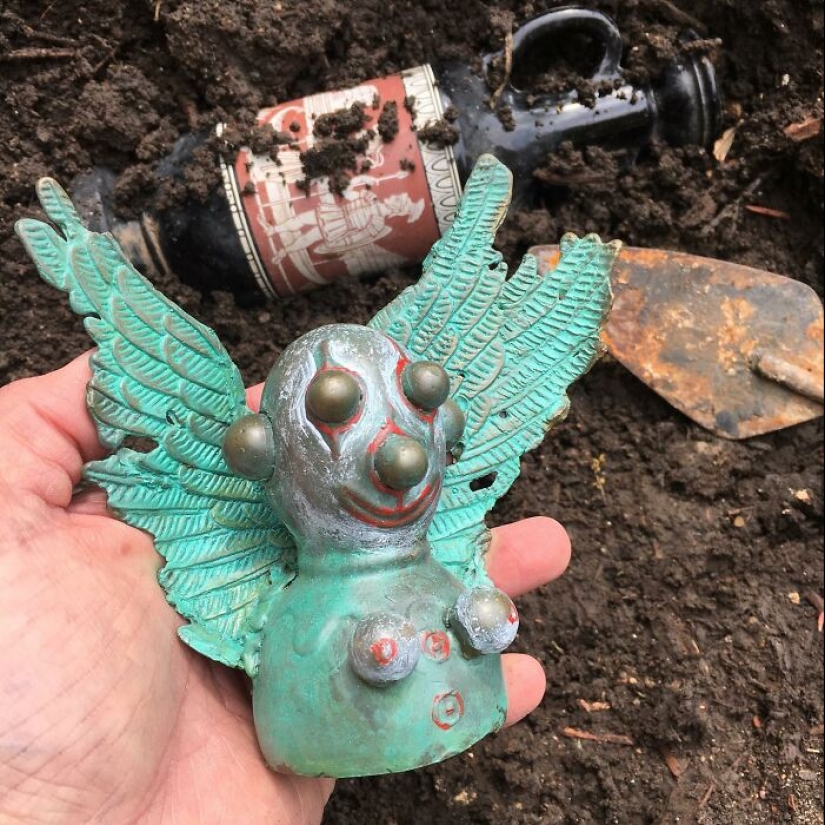
#10
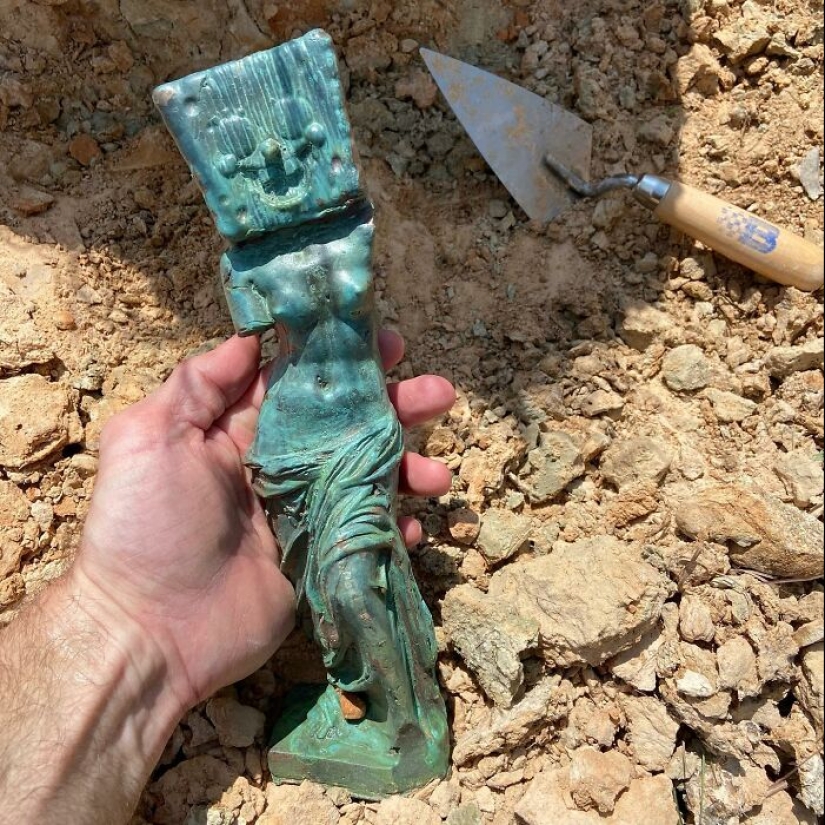
#11
And lastly, Joshua added: “I’m always looking for fascinating and obscure historical tidbits so if you’re aware of any you’d like to share, please reach out. I love a good story.”
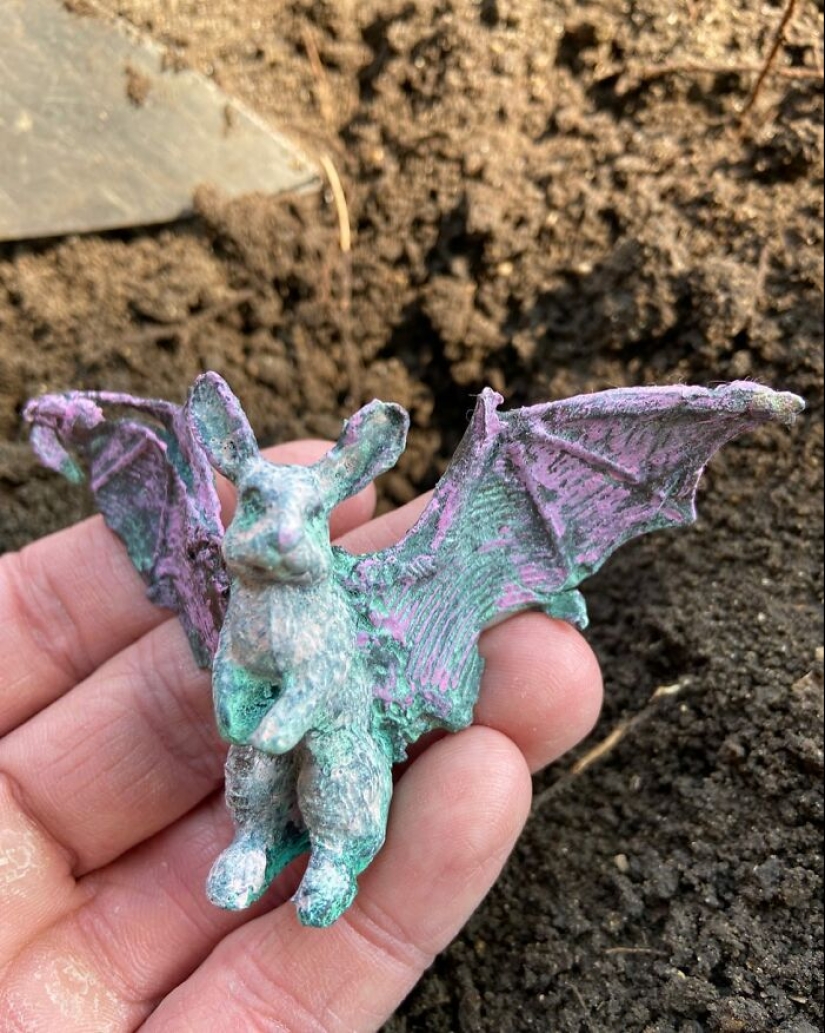
#12
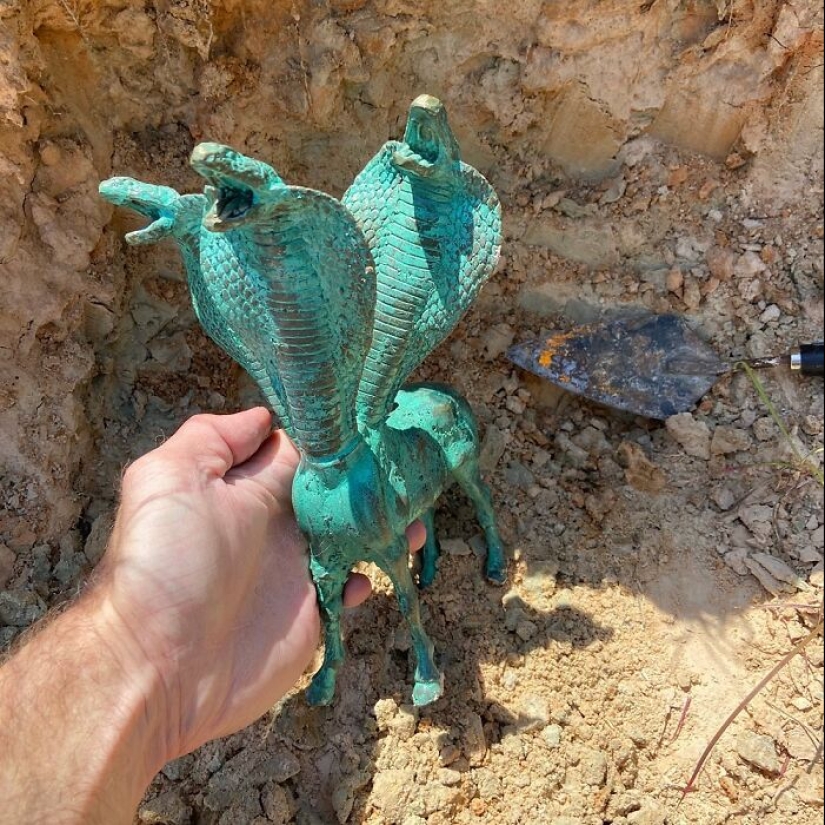
#13
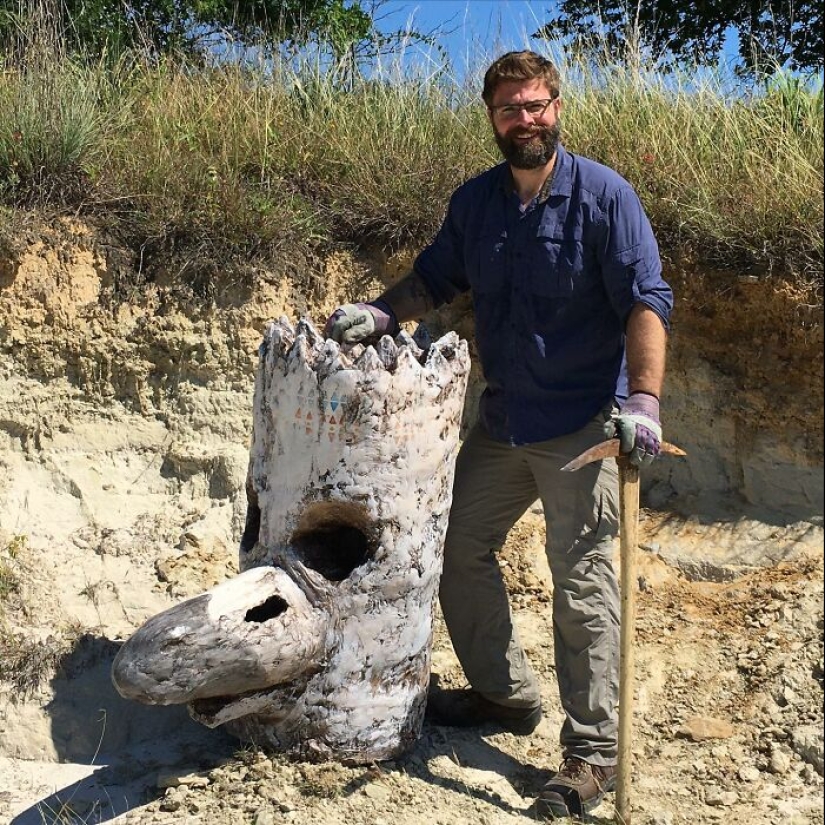
#14
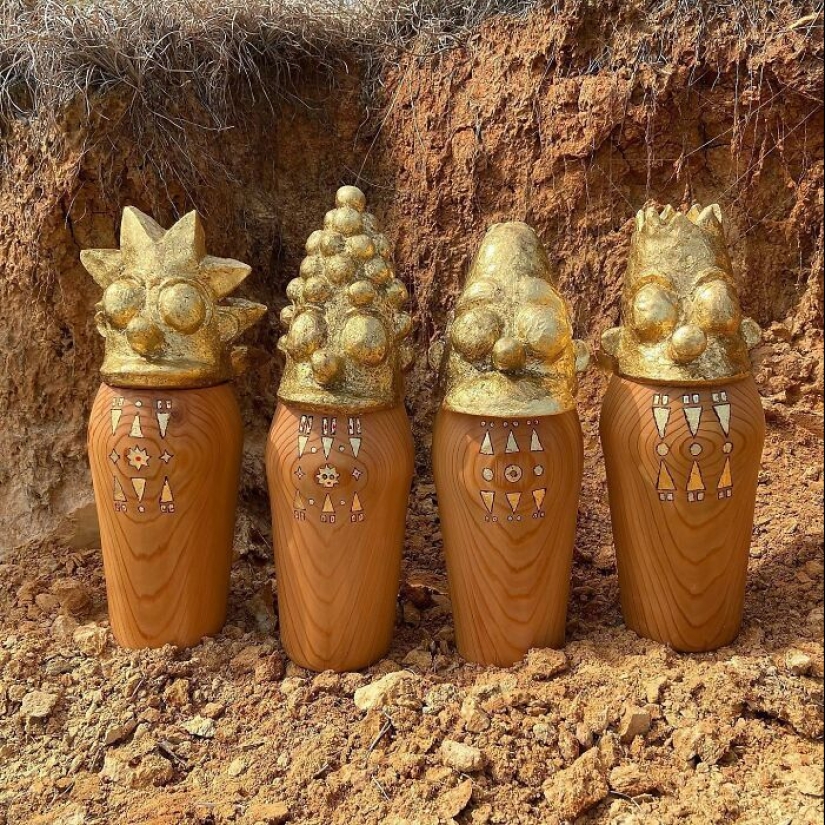
#15
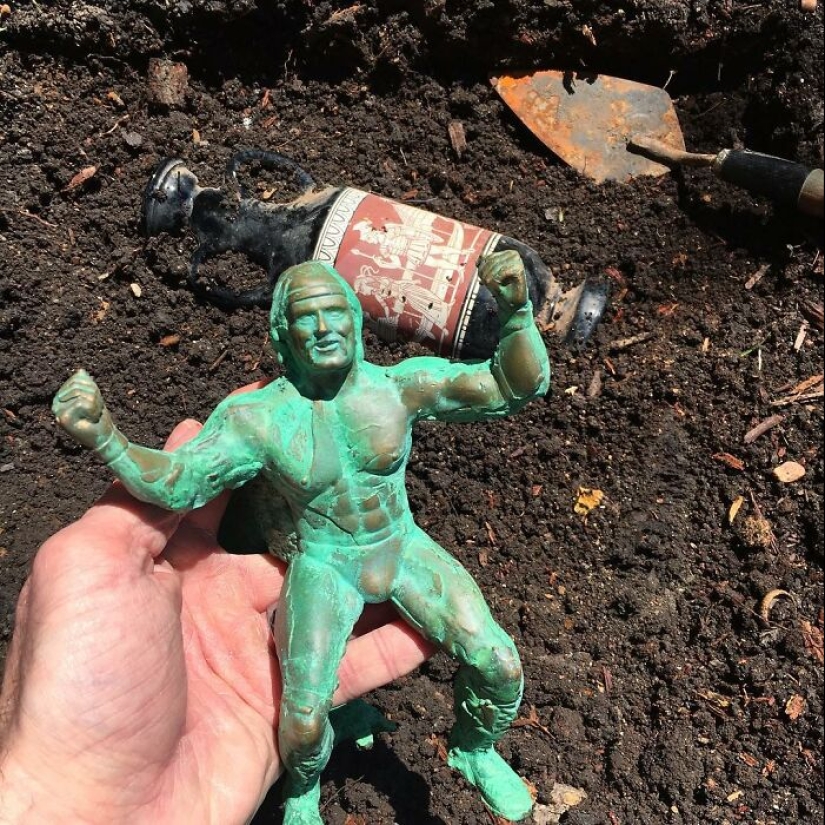
#16
Keywords: Artists | Pop Characters | Ancient artifacts | Fake ancient artifacts | Archaeologists | Archaeological finds
Post News ArticleRecent articles

It's high time to admit that this whole hipster idea has gone too far. The concept has become so popular that even restaurants have ...

There is a perception that people only use 10% of their brain potential. But the heroes of our review, apparently, found a way to ...
Related articles

These artists love cats, but also masterfully draw them, often complementing funny and life signatures. Meet! --> Russian ...

Artists perpetuate the images of his muses in paintings, sculptures and other works. Them they draw inspiration for creativity. ...

There is nothing strange in the fact that certain images and concepts of fear are repeated in the horror genre. Themes of horror ...

New Year's is a time to surprise and delight loved ones not only with gifts but also with a unique presentation of the holiday ...